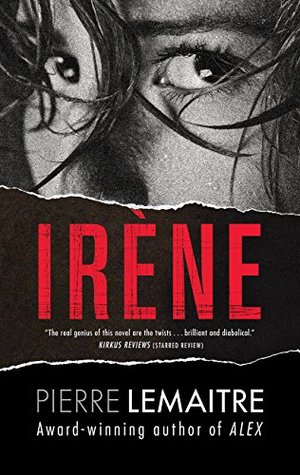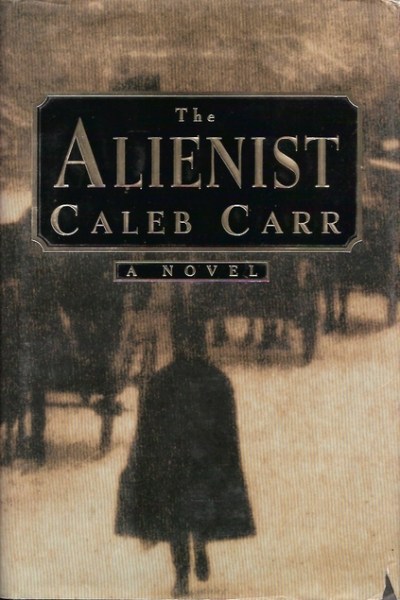Here’s a pleasant way to begin your day. http://www.levarburtonpodcast.com/
Here’s a pleasant way to begin your day. http://www.levarburtonpodcast.com/
 Peach
PeachVerb.
2 . Transitive verb: to inform against: betray.
Intransitive verb: to turn informer.
[Origin: Middle English pechen, short for apechen to accuse, from Anglo-French apecher, empecher to ensnare. A shortening of appeach, an obsolete variant of impeach. Related: Peached; peaching. ]
(1560)
“I have the cabman who took you to Whitehall and the cabman who brought you away. I have the commissionaire who saw you near the case. I have Ikey Sanders, who refused to cut it up for you. Ikey has peached, and the game is up.” – The Adventure of the Mazarin Stone, The Case-Book of Sherlock Holmes – Arthur Conan Doyle.
While James Cagney never actually said the line “you dirty rat”, I can hear his voice in my head, saying “you dirty, rotten peach!”
 Malevolent
MalevolentAdjective.
1: having, showing, or arising from intense often vicious ill will, spite, or hatred.
2: productive of harm or evil.
-malevolently, adverb.
[Origin: Latin malevolent-, malevolens, from male badly + volent-, volens, present participle of velle to wish.]
(1509)
“He had a vision of that lone velvety ear, fluttering like a huge malevolent moth through the attics at the Schloss.” – Wash This Blood Clean From My Hand, Fred Vargas.
 Antipathetic
AntipatheticAdjective.
1: having a natural aversion; also: not sympathetic: hostile. Opposed, averse, contrary; having or showing antipathy.
2: arousing antipathy.
Antipathetically – adverb.
Antipatheticalness – noun.
[Origin: Greek antipathḗs opposed in feeling, anti– + –pathēs, adj. derivative of páthos, with –etic by analogy with pathetic.]
(1630-40)
“Schnee, the colony’s governor, called upon Fu Hao in the unexpected company of his antipathetic military counterpart, Oberstleutnant Lettow-Vorbeck.” – Everfair, Nisi Shawl.

Naomi Klein photographed in Toronto for the Observer New Review. Photograph: Christopher Wahl for the Observer.
For those of us who can’t help looking at those events without turning lines from WB Yeats’s The Second Coming over in our heads (“what rough beast, its hour come round at last, slouches towards Bethlehem to be born?”), Klein’s new book – which examines in detail both the phenomenon of Trump and how liberal and progressive forces might counter his reality – is a brilliant articulation of restless anxiety.
Speaking at her home in Toronto last week, Klein suggested to me that Trump’s novelty was to take the shock doctrine and make it a personal superpower. “He keeps everyone all the time in a reactive state,” she said. “It is not like he is taking advantage of an external shock, he is the shock.
[…]
The daughter of American parents, Klein lives in Toronto with dual citizenship. When she thought about putting her book together, her original plan was for an anthology of articles threaded together with interviews, but once she started analysing the presidency she kept writing in a kind of frenzy. One of the benefits of having a deadline and an all-consuming project was that it meant she was forced to use the blocking app Freedom to protect her from the distraction of the internet. “I think if I hadn’t written this book I just would have stared at Twitter like many others for months on end, watching it unfold, and writing snippy things at people.”
That tendency among Trump’s critics, she says, is a symptom of his banal influence. She devotes one section of her book to the notion that through Twitter Trump is making the political sphere in his own image and that “we all have to kill our inner Trump”. Among other things, she says, the president “is the embodiment of our splintered attention spans”. One essential ingredient of resistance, she suggests, is to retain a belief in telling and understanding complex stories, keeping faith with narrative.
One of the questions that Klein’s book does not reach a conclusion about is how conscious Trump is of his shock doctrine tactics. Is he a demagogue in the scheming manner of Putin and Erdoğan, or just a useful idiot for the forces around him?
“I think he is a showman and that he is aware of the way that shows can distract people,” she says. “That is the story of his business. He has always understood that he could distract his investors and bankers, his tenants, his clients from the underlying unsoundness of his business, just by putting on the Trump show. That is the core of Trump. He is undoubtedly an idiot, but do not underestimate how good he is at that.”
There’s yet to be an official Game of Thrones Lego set for fans to geek out over, so programmer Matt Omori, a.k.a., YouTuber Tusserte, went ahead and built his own. In a project that took him around 18 months and over 100 hours of input, he’s built a Lego replica of the Red Keep throne room.
Omori designed the room from scratch after studying its appearances in the series and watching behind-the-scenes footage. The resulting model used around 15,000 pieces, 1,000 of which are just used as scaffolding for the base and can’t even be seen in the final model. Before it was built, Omori played around with designs in Lego’s Digital Designer software, which helped him nail the design virtually and let him know what specific parts he needed to buy.
You can see and read much more at The Creators Project.
Game of Thrones is a tale told in cloth as much as it is in blood and fire. Between the CGI-heavy battles with White Walkers and wildfire, the politics of presentation is key. Who can forget the end of Season Four when Sansa abandoned her girlish gowns for black leather and feathers, or Jon Snow’s Season Six shift from the black crow cape to the proudly wearing the Direwolf of Winterfell?
Costume designer Michele Clapton, who’s taken home two Emmys for her work on Game of Thrones. She opens up about her past and the creative process behind her most stunning ensembles in a new featurette. Along with nuggets about her fashion school days bouncing ideas off fellow New Romantics Steve Strange and Boy George, she concisely summarizes the role of a costume designer: “You know the story, you know what their relationships are. You need to say that somehow in cloth.”
This post contains minor spoilers for Game of Thrones.
Via The Creators Project.
 Gauche
GaucheAdjective.
1a: lacking social experience or grace; also not tactful: crude.
1b: crudely made or done.
2. not planar.
– gauchely adverb
– gaucheness noun
[Origin: French, literally, left]
(1751)
“I got out of my car, map of Glasgow in hand, and asked her for directions I did not need in an English I hoped was gauche and charming.” – Irene, Pierre Lemaitre.
 Nascent
NascentAdjective.
Coming or having recently come into existence.
[Origin: Latin nascent-, nascens, present participle of nasci to be born.]
(C. 1624)
“Near the end of Delancey Street, the smells of sea and fresh water, along with the stench of refuse that those who lived near the waterfront simply dumped off the edge of Manhattan every day, mingled to produce the distinctive aroma of that tidal pool we call the East River. A large structure soon slanted up before us: the ramp approach to the nascent Williamsburg Bridge. Without pausing, and much to my dismay, Stevie crashed onto the boarded roadway, the horse’s hooves and carriage wheels clattering far more loudly against wood than they had against stone.” – The Alienist, Caleb Carr.

‘Once somebody has bared their body, they are much more likely to bare their soul. You get a much better interview after the picture.’ Photograph: Laura Dodsworth.
This is a truly absorbing project from Laura Dodsworth, author and photographer of Manhood: The Bare Reality. It’s not the photos of all the penises which fascinate; most people have seen more than one, it’s the people attached to said penises, and their stories about the various tangles of manhood and the ever elusive sense of masculinity. I found myself sitting down with a cuppa to read all the stories at the Guardian, and I will buy the book.
Warning: NSFW. Have a care peeking below the fold, there are penises lurking.
 Vitrification
VitrificationNoun.
1. The process or act of vitrifying or the state of being vitrified.
2. Something that is or has been vitrified.
Vitrify
Verb -fied; -fying
Transitive verb: to convert into glass or a glassy substance by heat and fusion.
Intransitive verb: to become vitrified.
Vitrifiable – adjective.
Vitrification – noun.
[Origin: Middle French vitrifier, from Latin vitrum glass.]
(1594)
“This is in fact a DEEP SEVEN cadaver, and appears to have undergone some sort of postmortem vitrification process, or perhaps a hibernation from which it failed to emerge, approximately seven million years ago.” – The Jennifer Morgue, Charles Stross.
 Paraphernalia
ParaphernaliaNoun plural but singular or plural in construction.
1. The separate real or personal property of a married woman that she can dispose of by will and sometimes according to common law during her life.
2. Personal belongings.
3. a: Articles of equipment. b: Accessory items.
[Origin: Medieval Latin, ultimately from Greek parapherna, bride’s property beyond her dowry, from para + phernē dowry, from pherein to bear.]
(1651)
“Timothy Poe was not at 101 MacDougal Street, but a vast array of drug paraphernalia was. Unfortunately for him, it was more than enough to raise the eyebrows of even the most jaded of Mulvaney’s men: a stash of opium, a bottle of Bayer’s heroin, some cocaine toothdrops, and a dozen hypodermic needles of the type that had pricked Detective Marwin. Though it was not illegal to possess any of these items, it was frowned upon by polite society – and their discovery would do Poe no good.” – A Curtain Falls, Stefanie Pintoff.
 Impecunious
ImpecuniousAdjective.
Having very little or no money, usually habitually: penniless.
– impecuniosity, noun.
– impecuniously, adverb.
– impecuniousness, noun.
[Origin: in – + obsolete, English pecunious, rich, from Middle English, from Latin pecuniosus, from pecunia, money.]
(1596)
“So many conferees came down to the aisle to congratulate my choice of entertainment for the evening I felt overwhelmed. But academics enjoy nothing so much as a golden opportunity to feel superior, and in this case, impecunious and bedraggled professors could sail off having felt that they had bested wealth, beauty, stardom, and Hollywood itself.” – The Edith Wharton Murders, Lev Raphael.
Stephen King has come across a horror which outdoes every one of his works, and its name is Donald Trump.
That this guy has his finger on the nuclear trigger is worse than any horror story I ever wrote.
— Stephen King (@StephenKing) May 4, 2017
“That this guy has his finger on the nuclear trigger is worse than any horror story I ever wrote.”
King, who wrote “Carrie” and “The Stand,” said the president’s first hundred days present a “clear portrait: he’s an almost textbook case of narcissistic personality disorder.”
It’s a pity this isn’t a King book, we could have all skipped to the end, slammed it shut, and tucked it away in a nice dark corner. Via Raw Story.
